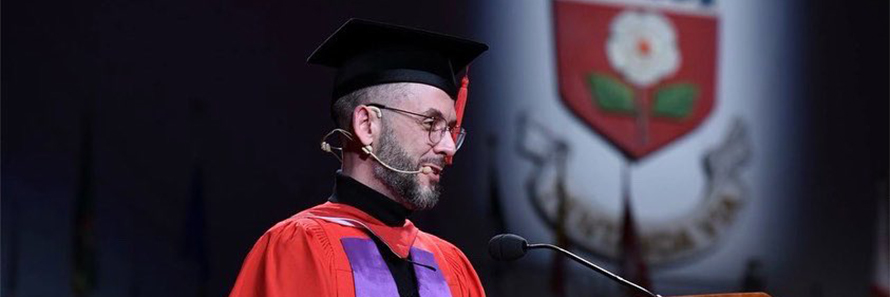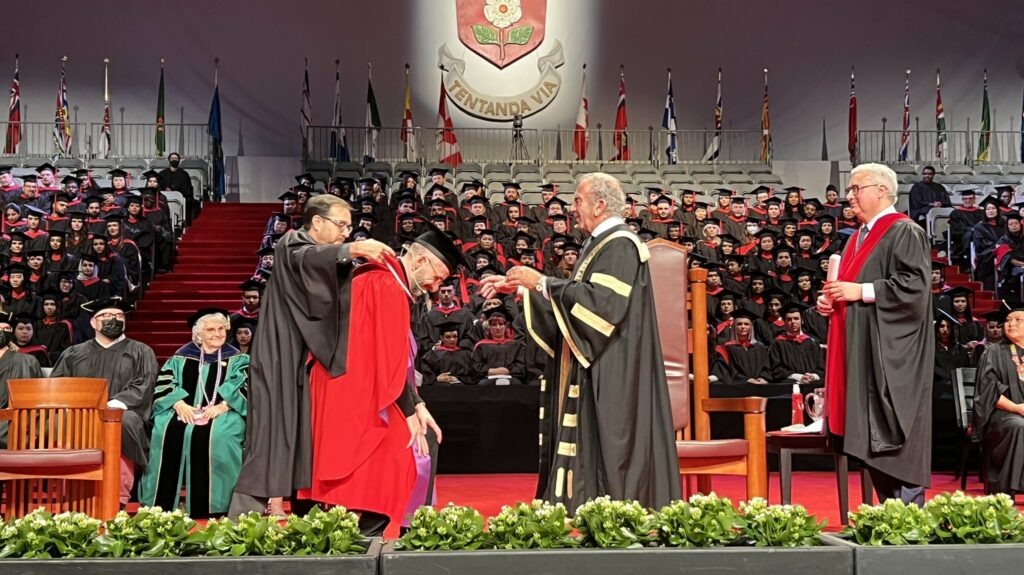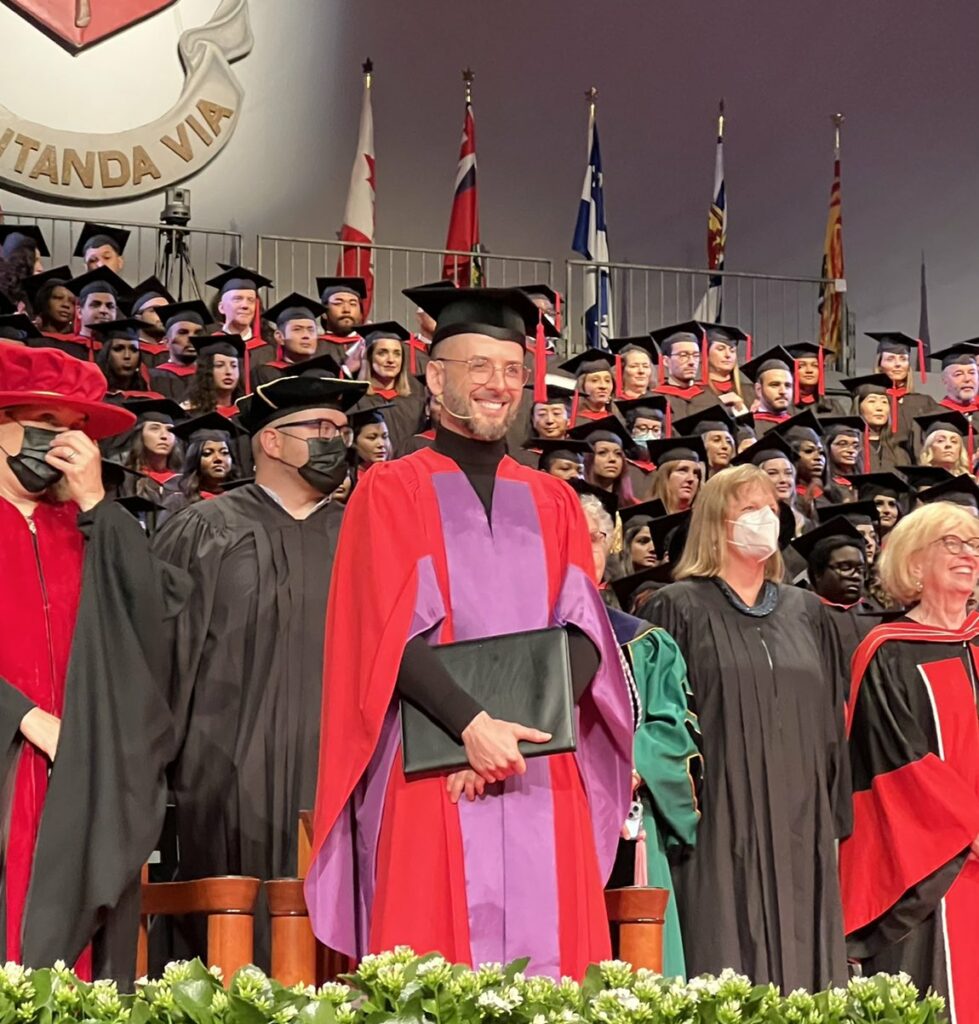
By Jenny Pitt-Clark
Actor, cultural leader, multiple Grammy Award-winning music producer and philanthropist, Noah “40” Shebib, was at York University on Oct. 12 to accept an honorary doctor of laws during Fall Convocation ceremonies.
Noah “40” Shebib is a creator who exemplifies excellence and dedication toward bringing positive change. On Oct. 12, York University recognized 40’s work as a Canadian innovator, artist, philanthropist and entrepreneur with its highest accolade, an honorary doctor of laws degree, awarded during Fall Convocation ceremonies for graduands of the School of the Arts, Media, Performance & Design; Glendon; the Faculty of Health; and Osgoode Hall Law School.

Together with Drake, 40 has helped to transform the hip-hop scene, the music industry and contemporary culture in Toronto, and beyond. In addition to his creative genius, 40 has worked to build awareness about multiple sclerosis and raise money for research into its cause. He is also the co-founder of The Justice Fund, an organization working in and with communities and other organizations to address the effects of trauma and cycles of conflict.
After accepting his honorary degree from York University, 40 delivered a message to graduands about the power of hard work, the creative process and the positive impact of giving back, but it was the story behind his unusual nickname that he used to began his remarks. “What I want to talk to you about today is a bit cliché … it’s about hard work, which is funny because that’s actually how I got my name 40,” he said. “It’s short for 40 days and 40 nights because that’s how long, apparently, the myth says I can work without sleeping (although I wouldn’t recommend it). Early on I realized that the harder I worked, the more I could create and the more I could create, the more opportunity I would have for success.
“That’s actually how I make music. Everyone always asks me ‘How did you make this song?’ or ‘How did you think of that idea for this song?’ and the funniest part is that I literally just throw something at the wall and then I throw it again and I throw it again and again until it starts to take shape,” he said, noting that hard work and dedication to his art drove him to keep going at any cost, because he knew it would be the only way he could create a global appreciation for his unique musical style.
In the early years, Drake and 40 fought be taken seriously in the geographical void created by the enormity of the music scene in the United States. “Drake and I were two kids in Canada and we had no choice but to just try as hard as we could,” he mused.

When their innovative music took off and fame arrived, 40 said that he and Drake never paused to bask in the spotlight. Instead, he said, they worked even harder to refine and redefine their art. Along the way, 40 told grads that he learned an important lesson that working “smart” actually magnified the success brought by working hard, and he took time to thank his mentor, music engineer Les Bateman for teaching him that lesson.
He described Bateman as someone “who would always read the manual first” before using a new software or tool. This was a quality that 40 admitted took significant time for him to appreciate and incorporate into his life. “After 15 years in this business, we’re all trying to find our happiness in a mindful way, so as much as I can sit here and preach working harder to you, at this point in my life I’m trying to learn to work smarter as well.”
In his teaching, Bateman urged 40 to learn to use the right tool for the right job, something he said he still finds difficult to adopt. “I am often struggling with my impatience and my attitude that no matter what, I will just work through it and find my way through sheer diligence.” That attitude, he said, nearly cost the successful launch of the second studio album he made with Drake. It was Bateman’s calm and measured approach to working “smart” that rescued the project (along with a great deal of coffee). “Always read the manual,” he said with a wry grin.
In addition to hard work, smart work (and reading the manual), 40 urged grads to make it a priority in their lives to give back. “What you put into the universe will come back to you tenfold so you fight to give as much to the world as you can,” he said.
He asked grads to focus on creating a culture that can “support us all.”
40 ended his remarks with this observation: “It’s the greatest honor to care and my number one source of joy and fulfillment … something that has always been my ‘cheat code.'”
